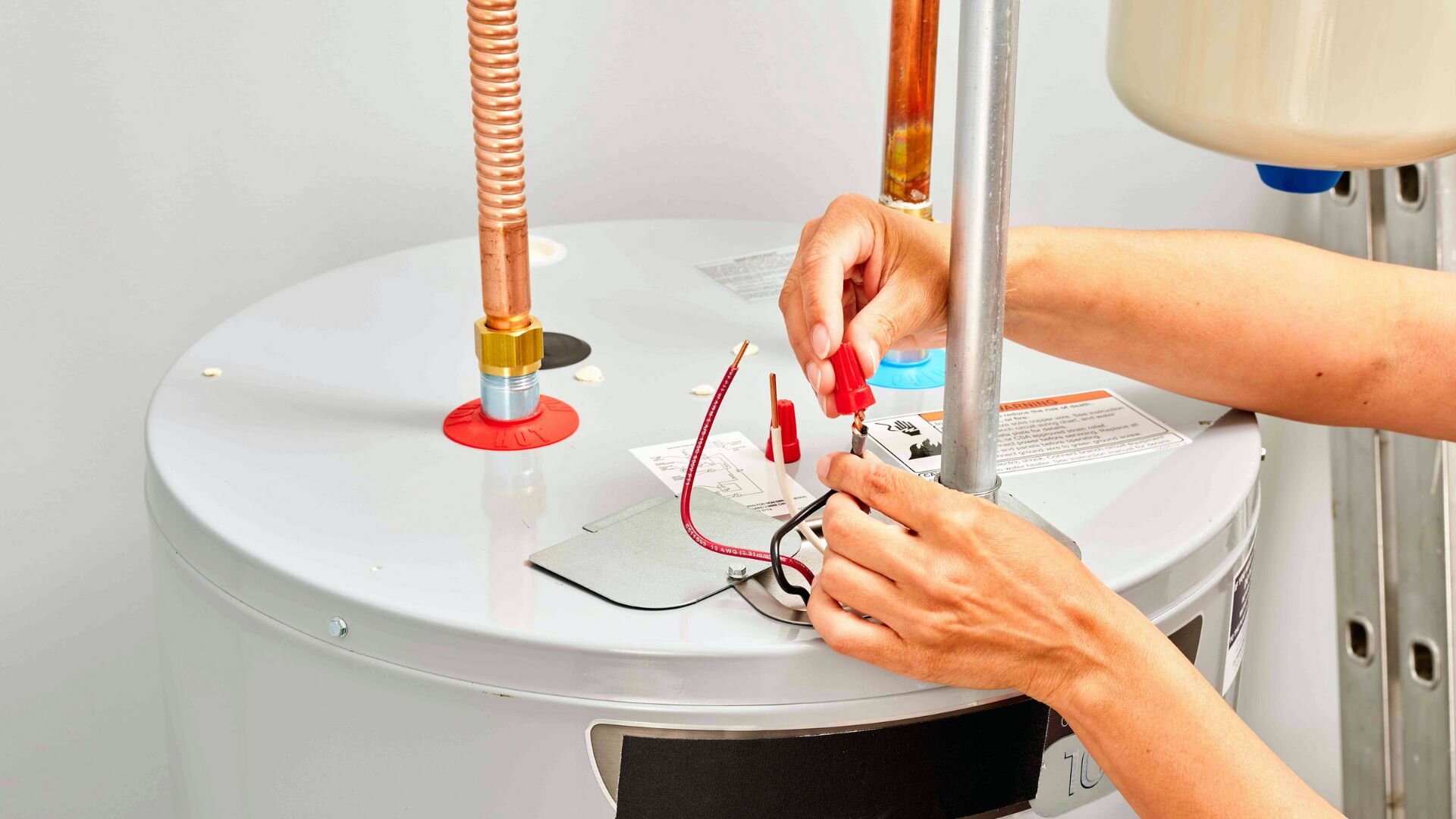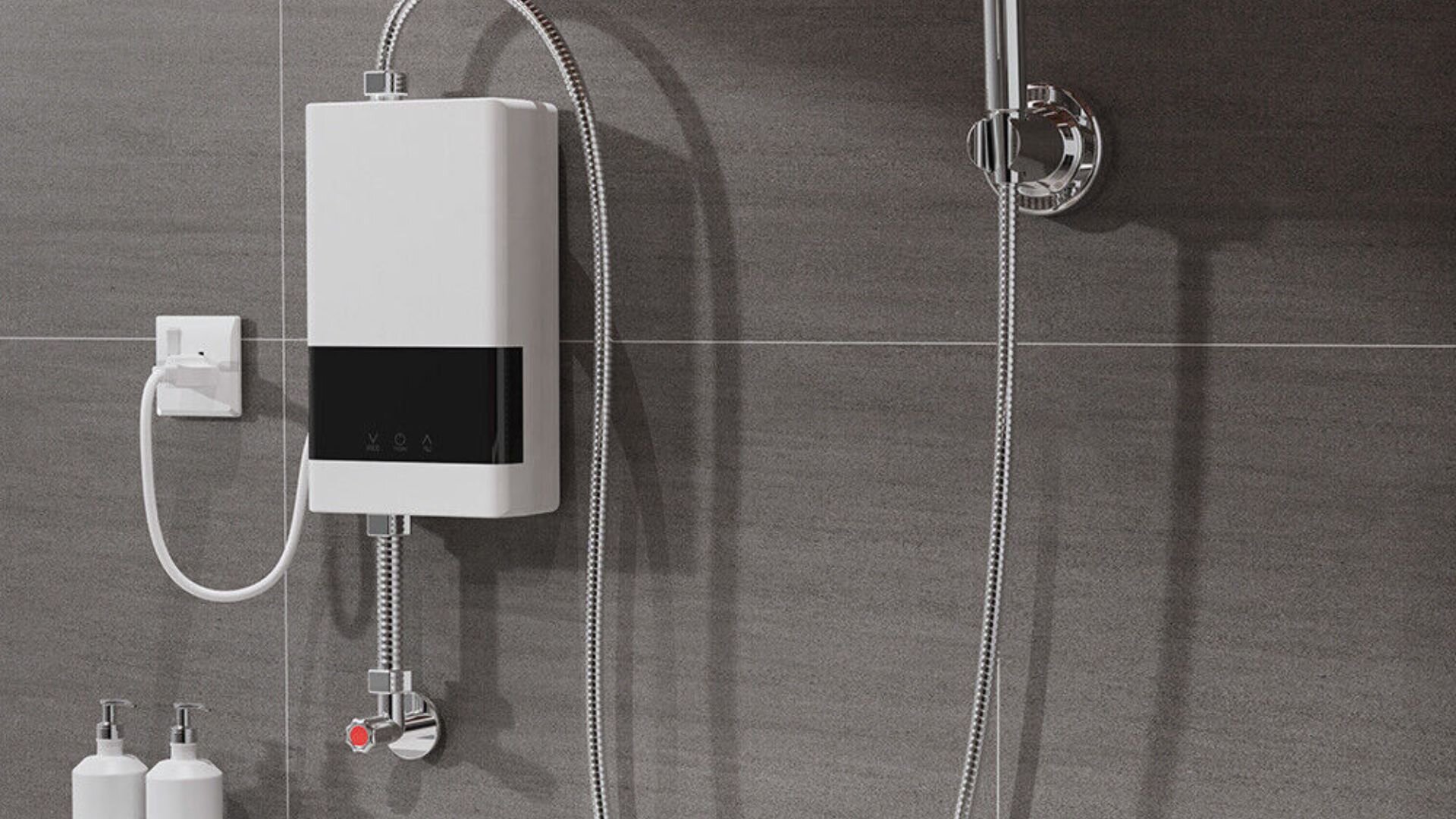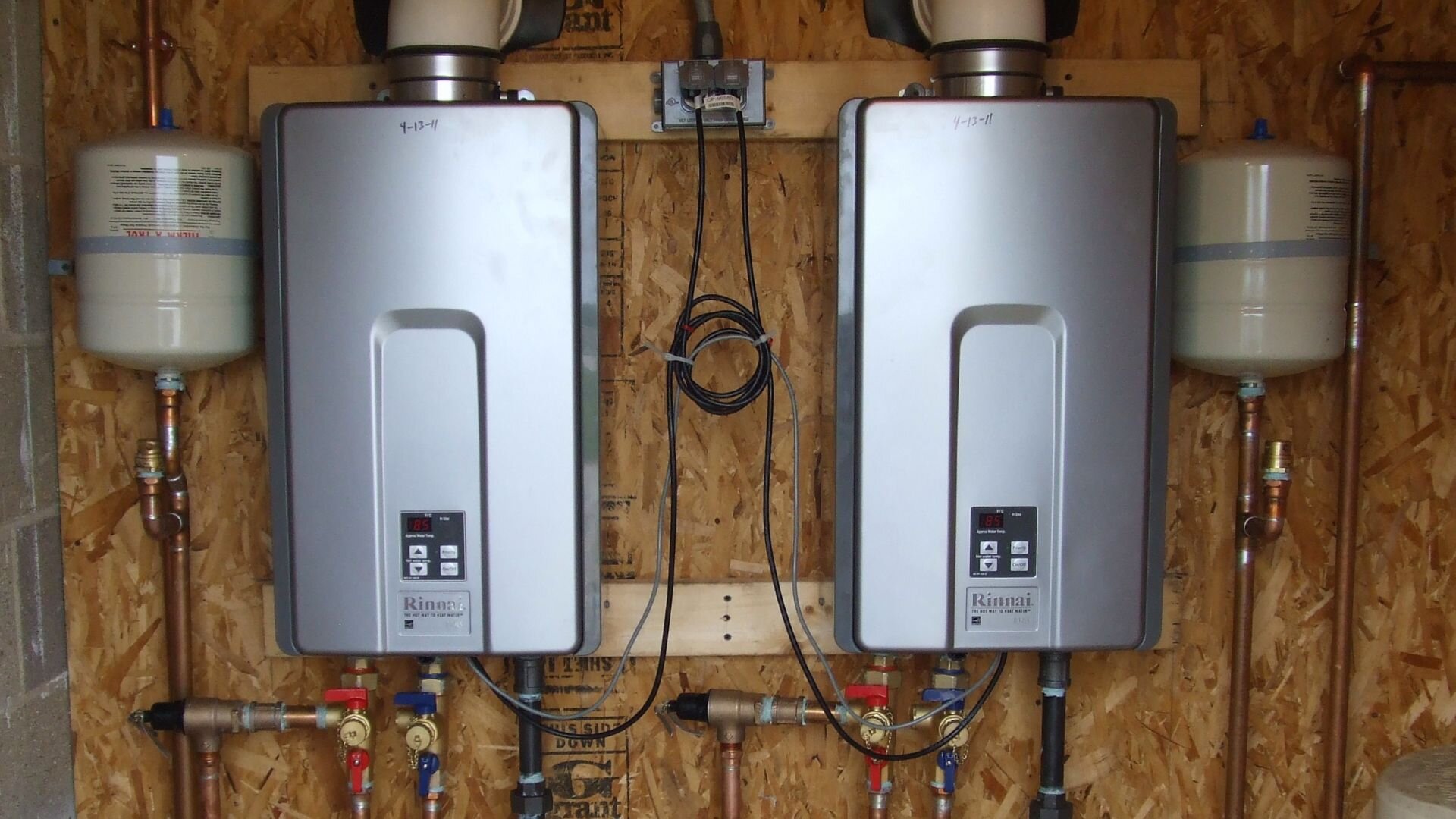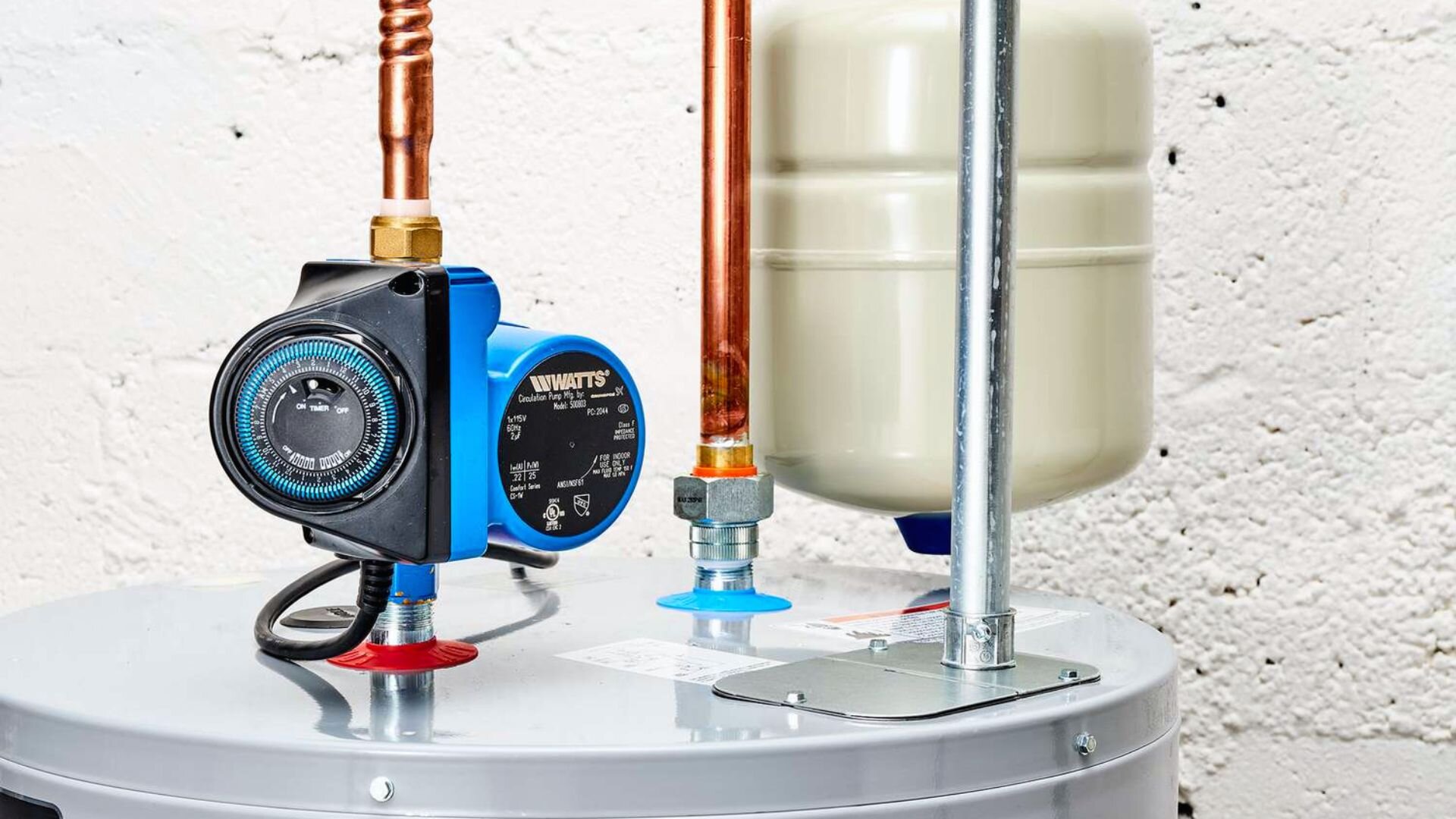Owning an electric hot water system, you’d hope for many years of smooth and efficient service. But how long should an electric water heater really last? Well, it hinges on several critical aspects.
We’ll explore what impacts the longevity of electric hot water systems, how to recognise signs of wear, and pro tips to extend the life of your unit. With some essential maintenance and care, your electric water heater can function optimally for over a decade. Get ready to learn the secrets behind maximising the lifespan of your electric hot water heater and ensuring an affordable hot water supply in your home!
Understanding Electric Hot Water Systems

Electric hot water systems are popular for homeowners seeking a reliable and efficient solution for their hot water needs. These systems have several key components that provide a steady hot water supply.
The heart of an electric hot water system is its storage tank, which both holds and heats water. Typically, an electric resistance element is used to bring the water to the desired temperature.
A thermostat controls the temperature, ensuring it stays within the set range. Cold water enters the tank through an inlet pipe, while reliable hot water is delivered to the various fixtures in the house through an outlet pipe.
The storage tank is often insulated to help retain heat and improve energy efficiency. Electric hot water systems offer advantages such as ease of installation and high energy efficiency, making them a popular choice for many households.
Factors Affecting Your Systems Lifespan
A variety of factors can influence how long your electric hot water system lasts. One key aspect is regular maintenance, which is vital for keeping it in good working order.
If you neglect tasks like flushing the tanks, checking for leaks, and inspecting any broken heating elements, your system might wear out sooner than expected. Proper usage also plays a vital role.
Overloading the system with excessive demand or subjecting it to frequent temperature fluctuations can strain its components and reduce its lifespan. Water quality also plays a role, as hard water with high mineral content can cause mineral build-up and corrosion, affecting the system’s efficiency and lifespan.
Things like the temperature and humidity of your environment can also affect how well your system performs and how long it lasts.
Average Lifespan Of Electric Hot Water Systems
How long do hot water systems last? The average lifespan of electric hot water systems can vary depending on several factors. When it comes to the end of a hot water system’s lifespan, and you are looking at replacements, it is a good idea to consider your budget, how much hot water you need, how energy efficient you want to be and to talk to a licensed plumber about what they think would be best.

In general, hot water systems last around 8 – 12 years. However, it’s important to note that various variables influence this estimate. For instance, glass or enamel-lined tanks last for 5-10 years (approx), stainless steel: 7-10 years (approx), copper tanks: 7 years (approx), and heat pumps: 10 years (approx). Meanwhile, a continuous flow gas system can last 15 to 20 years with proper care.
The system’s quality, regular maintenance, water quality, and usage patterns can all impact its longevity. Well-maintained systems that receive regular servicing and have proper usage can often exceed the average lifespan. On the other hand, systems that need to be adequately maintained or are subjected to harsh water conditions may experience a shorter lifespan. Additionally, technological advancements and improvements in manufacturing standards can contribute to the increased longevity of newer models.
Signs Of A Failing Electric Hot Water System
A failing electric hot water system can cause inconvenience, discomfort, and even potential damage to your home. Recognising the signs of a failing system is essential for homeowners to take timely action and avoid unexpected disruptions. So, let’s dive into the telltale signs that your electric hot water system may be on the brink of failure.

Reduced Efficiency
One of the primary signs of a failing electric hot water system is a noticeable decrease in efficiency. If your hot water takes longer to heat up or doesn’t reach the desired temperature as quickly as before, it could indicate a problem with the system. Worn-out heating elements, sediment build-up in the hot water tank, or other internal issues can cause reduced efficiency.
Frequent Breakdowns
Another clear indication of a failing electric hot water system is experiencing frequent breakdowns or malfunctions. If you find yourself repeatedly needing to repair the system or if it consistently fails to provide hot water, it may be a sign that the system is nearing the end of its lifespan. Components such as thermostats, pressure valves, or the heating element may fail and need replacement.
Unusual Noises
Odd noises coming from your electric hot water system might signal hidden issues. Sounds like banging, rumbling, or popping could mean sediment or minerals are building up inside the tank. This can make the system work harder, reducing efficiency and potentially causing damage.
Water Leakage
Water leaking around your hot water system is a sure sign something’s wrong. Whether it’s a tiny drip or a bigger leak, it needs fixing. Leaks might happen because of worn seals, cracks in the tank, or faulty valves. If you ignore these, it could lead to water damage and more problems down the track.
Extending The Lifespan Of Your Electric Hot Water System
Extending the lifespan of your electric hot water system is cost-effective and ensures a consistent hot water supply when you need it most. By implementing a few simple practices, you can maximise the efficiency and longevity of your system. Regular maintenance is crucial for keeping your electric hot water system in optimal condition. Flushing the tank periodically helps remove sediment and mineral build-up, which can affect its performance.
Check for any leaks, faulty valves, or damaged components and address them promptly. Insulating the hot water pipes will also minimise heat loss and improve energy efficiency.

Adjusting the temperature settings can also extend the system’s lifespan. Lowering the temperature to a comfortable yet energy-efficient level reduces strain on the heating elements and can prevent overheating, which can lead to premature wear and tear or tank corrosion.
Water quality plays a significant role in the lifespan of your hot water system. If you have hard water with high mineral content, consider installing a water softener or using a descaling agent regularly to minimise mineral build-up that can affect the system’s efficiency.
Energy-saving practices can also prolong the lifespan of your electric water heaters. Consider using a timer to schedule when the system operates, especially during off-peak hours when electricity rates may be lower. Insulating the storage tank with a jacket or blanket can help retain heat for extended periods, reducing the frequency of heating cycles and extending the system’s lifespan.
Replacement Options And Considerations
When it’s time to replace your electric hot water system, considering your options and various factors is crucial. One key consideration is the new system’s capacity, ensuring it meets your household’s water heater demands.

Energy efficiency is another factor to prioritise, as it can help reduce utility bills. Exploring different types of hot water systems, such as traditional storage tank systems or tankless options that heat water on demand, is also essential.
Budget is a significant consideration, along with the warranty and after-sales service provided by the manufacturer. By carefully weighing these options and considerations, you can choose a replacement system that meets your capacity, energy efficiency, budget, and long-term reliability needs.
Maximising Efficiency And Longevity
Understanding the lifespan of your electric hot water system is essential for homeowners to plan for maintenance and potential replacements. Factors such as regular maintenance, proper usage, water quality, and environmental conditions can impact the longevity of your system.
Spotting the signs of a failing system and taking proactive steps can extend its life, ensuring a steady hot water supply. Should you have any further questions or need professional help with your electric hot water system, do reach out to Enersol Electrical.
Our experienced team can provide expert advice and services to help you optimise your system’s performance and lifespan. Contact us today for all your electric hot water system needs on the Gold Coast!